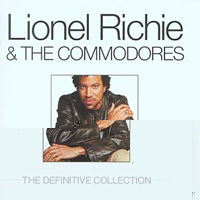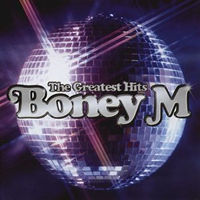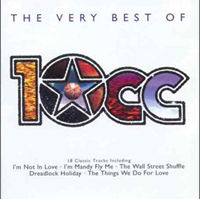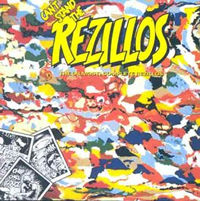Jason Maloney reviews
V o l u m e # 3 0 Chart Date: 26th August 1978 Online Date: 26th August 2004

The Definitive Collection
A week earlier Three Times A Lady had been the record to finally bring to an end the domination of John Travolta & Olivia Newton-John‘s You’re The One That I Want. For 9 consecutive weeks the pair had seen off all competition with the first of their back-to-back #1s. You’re The One That I Want and its follow-up Summer Nights were both taken from the film Grease, which also yielded a third major hit single in the shape of Frankie Valli‘s title song, new this week at #31.
The setting for Grease, although you wouldn’t have guessed from the sleek funkiness of the Barry Gibb-penned effort from Valli, was 50s America; an era which vocal group Darts drew on very successfully for a period between 1977 and 1979. Daddy Cool opened their account at the tail end of 1977, reaching #7, followed by another Top 10 hit The Boy From New York City. Their third entry, It’s Raining, would become their highest-charting single to date; curently up a notch to #3, it peaked at #2 in early September.

Although they originally made their name on the singles Top 40 in 1964 with the chart-topping Go Now, the Moody Blues had long since become better known as an album act. The hits tailed off after 1970’s Question made #2, although signature tune Nights In White Satin repeated its Top 20 successes of 1968 (#19) and 1972 (#9) with another visit to the charts in the autumn of 1979. In the meantime, lead vocalist Justin Hayward – who replaced the singer of Go Now,
Denny Laine, not long after their initial breakthrough in the mid-60s – had a major solo hit courtesy of Forever Autumn. Taken from Jeff Wayne’s musical extravaganza based on H.G.Wells’ War Of The Worlds, the track was at its peak of #5. The album itself became one of the longest-running hits of all-time, spending over 5 years on the UK chart.

10cc, one of the most consistently successful singles bands of the decade, were in the Top 10 yet again. With its now-legendary chorus of “I Don’t Like Cricket… I Love It”, Dreadlock Holiday (rising 12 places to #6 on only its 2nd week in the Top 40) set its unsettling lyrics of a tourist’s experiences in the Carribean to a almost jaunty reggae rhythm. The result was a late-summer smash, as the single toppled Three Times A Lady from the summit in September.
For 60s icons such as Bob Dylan and The Who, significant singles chart careers were beginning to wind down. Baby Stop Crying, down from a high of #13 to #15, proved to be Dylan’s last appearance on the UK singles rundown until the mid-90s, when Dignity sneaked into the lower region of the Top 40. Meanwhile, Who Are You (up 2 to #18) would only be followed by 1981’s You Better You Bet and the #40 hit Athena a year later.

Can’t Stand the Rezillos
Naming your single Top Of The Pops is shamelessly inviting attention, especially if said record fails to live up to its title by reaching #1, but The Rezillos did so anyway; Top Of The Pops (the song) climbed from #34 to #26, earning an appearance on Top Of The Pops (the music TV show) during its ascent to a high of #17.
Highest entry to the chart was Forget About You, the Motors’ follow-up to their Top 5 smash Airport, in at #31. Clearly the record-buying public still remembered them… for the time being at least. Immediately beneath them, an act destined for a longer career debuted with one of the earliest in a distinguished line of hits. The Jam‘s double A-side release David Watts/’A’ Bomb In Wardour Street only managed #25 in the end, but it continued their steady progress from bright new things to fully-fledged national treasures. By contrast, Bryan Ferry‘s dismal #37 showing with Sign Of The Times temporarily called time on his previously lucrative solo escapades outside of Roxy Music. In 1979, Roxy Music returned with a drastically altered line-up and, most importantly, a series of major hit singles from the Manifesto album.
Page Content copyright © Jason Maloney, 2004.
Reviewer of movies, videogames and music since 1994. Aortic valve operation survivor from the same year. Running DVDfever.co.uk since 2000. Nobel Peace Prize winner 2021.
